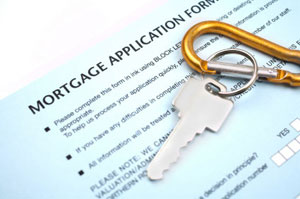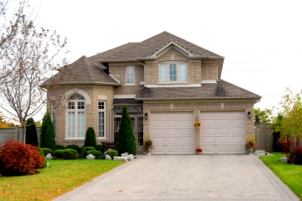How to Overcome HARP Refinance Qualification Obstacles
By Steven Roberts Updated on 7/21/2017
This article will outline the five main hurdles that borrowers must overcome when seeking approval for a HARP refinance, as well as providing helpful solutions for each when applicable.
Your mortgage is not backed by Fannie Mae or Freddie Mac.
Obstacle: Under the current guidelines, HARP approved refinances can only be obtained for Fannie Mae or Freddie Mac mortgages.
Solution: Unfortunately, the HARP program does not make any exceptions to this rule. As such, borrowers can either wait for HARP 3.0 to pass (in which case this requirement will likely be eliminated) or refinance as soon as their LTV ratios reach acceptable levels for more traditional refinance loan products.
You don't fit the timeframe for HARP.
Obstacle: To be eligible for a HARP refinance mortgages must have been acquired before June 1, 2009. This stipulation ensures that the HARP refinance solely applies to homeowners who were directly affected by the U.S. housing market decline and mortgage market collapse.
Solution: As with the previous requirement, the HARP program will not make any exceptions to this rule. Accordingly, borrowers can either wait for HARP 3.0 to pass, in which case this requirement will likely be eliminated, or refinance as soon as their LTV ratios reach acceptable levels for more traditional refinance loan products.
Your lender has restrictions on HARP approval.
Obstacle: Lenders frequently impose and enforce their regulations (also known as overlays) in an attempt to issue refinance loans to borrowers who aren't risky. Typically, these restrictions apply to HARP loan-to-value ratio (LTV) and credit score.
While the HARP 2.0 program does not restrict borrowers based on their LTV ratios, lenders will often only issue HARP approved loans on refinances to borrowers with LTVs of 125% or below.
Some even cap eligibility at 105%. Likewise, although HARP requirements accept borrowers with a credit score of 620 or higher, lenders frequently expect borrowers to have credit scores of 700 and above for HARP approval.
Solution: Shop around. Each lender has different requirements when issuing HARP refinance loans. As such, borrowers who meet the basic criteria for HARP should compare lenders and pose questions to determine each lender’s expectations and requirements.
While a borrower may be denied for one HARP request, he or she may still qualify with another lender and should not give up the attempt to secure a HARP refinance.
You have been late on your mortgage payments.
Obstacle: According to current HARP 2.0 regulations, borrowers will only receive HARP approval for a HARP refinance if they have not made any late mortgage payments within the past six months before HARP application.
Additionally, borrowers cannot have made more than one late payment within the last 12 months before the HARP application. These requirements help focus the range of eligible borrowers to those that have managed to uphold their mortgage obligations and continue to make mortgage payments.
Solution: Consider whether a HAMP loan modification might be more applicable or wait to refinance once this requirement is satisfied.
The Home Affordable Modification Program (HAMP) functions parallel to HARP, providing aid to borrowers who were adversely affected by the mortgage market collapse but who were unable to stay current on mortgage payments as a result.
Alternatively, borrowers with the financial means can continue to make mortgage payments until this requirement is satisfied and then refinance through HARP.
You want to use a HARP refinance on a second mortgage.
Obstacle: Obtaining a HARP refinance with a second mortgage can create difficulties for eligible homeowners. While standard refinance loans typically allow for the combination of the first and second mortgage into the new loan, HARP specifically disallows this aggregation of debt.
Homeowners will be able to receive HARP approval if the second mortgage lender agrees to the second mortgage. While HARP has flexible guidelines, second mortgage holders may enforce equity requirements, refusing borrowers with negative equity and defeating the purpose of the HARP refinance.
Solution: Unfortunately, if the second mortgage lender is entirely unwilling to cooperate and subordinate to the HARP refinance loan, borrowers will not be able to refinance the mortgage.
However, lenders will typically agree to re-subordinate, as refusing to do so could result in borrower default and foreclosure, in which case the second mortgage lender would only receive any remaining funds uncollected by the first mortgage lender.

Didn't find the answer you wanted? Ask one of your own.
-
 HARP 2.0 Requirements
View More
HARP 2.0 Requirements
View More
-
 Analyzing HARP Market Interest Rates
View More
Analyzing HARP Market Interest Rates
View More
-
 Can I Refinance an Investment Property with HARP?
View More
Can I Refinance an Investment Property with HARP?
View More
-
 What Banks Will Give Me a HARP 2.0 Refinance Loan?
View More
What Banks Will Give Me a HARP 2.0 Refinance Loan?
View More
-
 HARP 2.0 Appraisal
View More
HARP 2.0 Appraisal
View More
-
 What Do I Need for a HARP Application?
View More
What Do I Need for a HARP Application?
View More
-
 What is the HARP 3 Refinance?
View More
What is the HARP 3 Refinance?
View More
-
 What Are Some of the HARP 2.0 Limitations?
View More
What Are Some of the HARP 2.0 Limitations?
View More
-
 HARP 2.0 FAQ
View More
HARP 2.0 FAQ
View More
-
 HARP 2.0 Eligibility and Qualifications
View More
HARP 2.0 Eligibility and Qualifications
View More
Related Articles
Ask our community a question.
Searching Today's Rates...

Featured Lenders
Kat Whitman
Whitman Met, Inc.
Sacramento, CA
Lisa Stepp
RBS Citizens
Clifton Park, NY
Cameron Burke
Vision One Mortgage
Huntington Beach, CA

